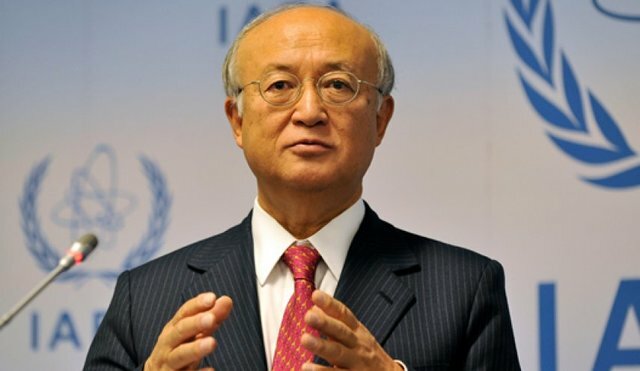UN watchdog confirms Iran’s promised uranium enrichment hike

TEHRAN - Iran has followed through on a threat to accelerate its production of enriched uranium, the head of the UN's atomic watchdog has said, departing from his usual guarded language to say he was worried about increasing tension.
The assessment comes at a time of sharply increased U.S.-Iranian confrontation, a year after Washington abandoned an international agreement that imposed curbs on Tehran's nuclear program in exchange for the lifting of financial sanctions.
Washington tightened sanctions on Iran from the start of May, ordering all countries and companies to halt any imports of Iranian oil or be banished from the global financial system. It also dispatched extra troops to the region to counter unspecified threats from Iran.
Iran responded with a threat to increase its enrichment of uranium, saying it was up to European countries who still support the nuclear deal to save it by finding ways to ensure Tehran receives the economic benefits it was promised.
IAEA chief Yukiya Amano, whose agency is responsible for monitoring Iranian compliance with the nuclear deal, said on Monday Iran was now producing more enriched uranium than before, but it was not clear when it might reach the stockpile limit of 300 kg set in the pact, Aljazeera reported.
"Yes, [the] production rate is increasing," he told a news conference on Monday when asked if enriched uranium production had accelerated since the agency's last quarterly report, which found Iran compliant with the nuclear deal as of May 20.
He declined to quantify the increase.
Iran said last month it was still abiding by the deal but would quadruple its production of enriched uranium - a move that could take it out of compliance if stockpiles rise too far.
Washington's European allies opposed its decision last year to abandon the nuclear deal, reached in 2015 between Iran and China, France, Germany, Russia, the United Kingdom and the United States.
They have promised to help Iran find other ways to trade, although with no success so far. All major European companies that had announced plans to invest in Iran have since called them off for fear of U.S. punishment.
Germany, France and Britain have since set up a special-purpose trade vehicle called INSTEX, designed to allow payments to Iran that would legally bypass sanctions. It is yet to be operationalized.
During a visit to Tehran on Monday, Germany's Foreign Minister Heiko Maas said the European signatories to the nuclear pact were doing their "utmost to prevent the failure of the deal".
"The situation in the region here is highly explosive and extremely serious," Maas told a news conference alongside Iran's foreign minister, Mohammad Javad Zarif.
"A dangerous escalation of existing tensions can also lead to a military escalation."
INSTEX was a new instrument and not straightforward to put into effect, Maas told reporters, adding: "But all the formal requirements are in place now, and so I'm assuming we'll be ready to use it in the foreseeable future."
Washington says the nuclear deal should be expanded to cover other issues including Iran's missile program and its influence in the region.
European countries argue that while they share those concerns, it would be harder to address them without the nuclear deal in place.
Iran has ruled out any negotiation over its ballistic missile program and its influence in the Middle East.
SP/
Leave a Comment